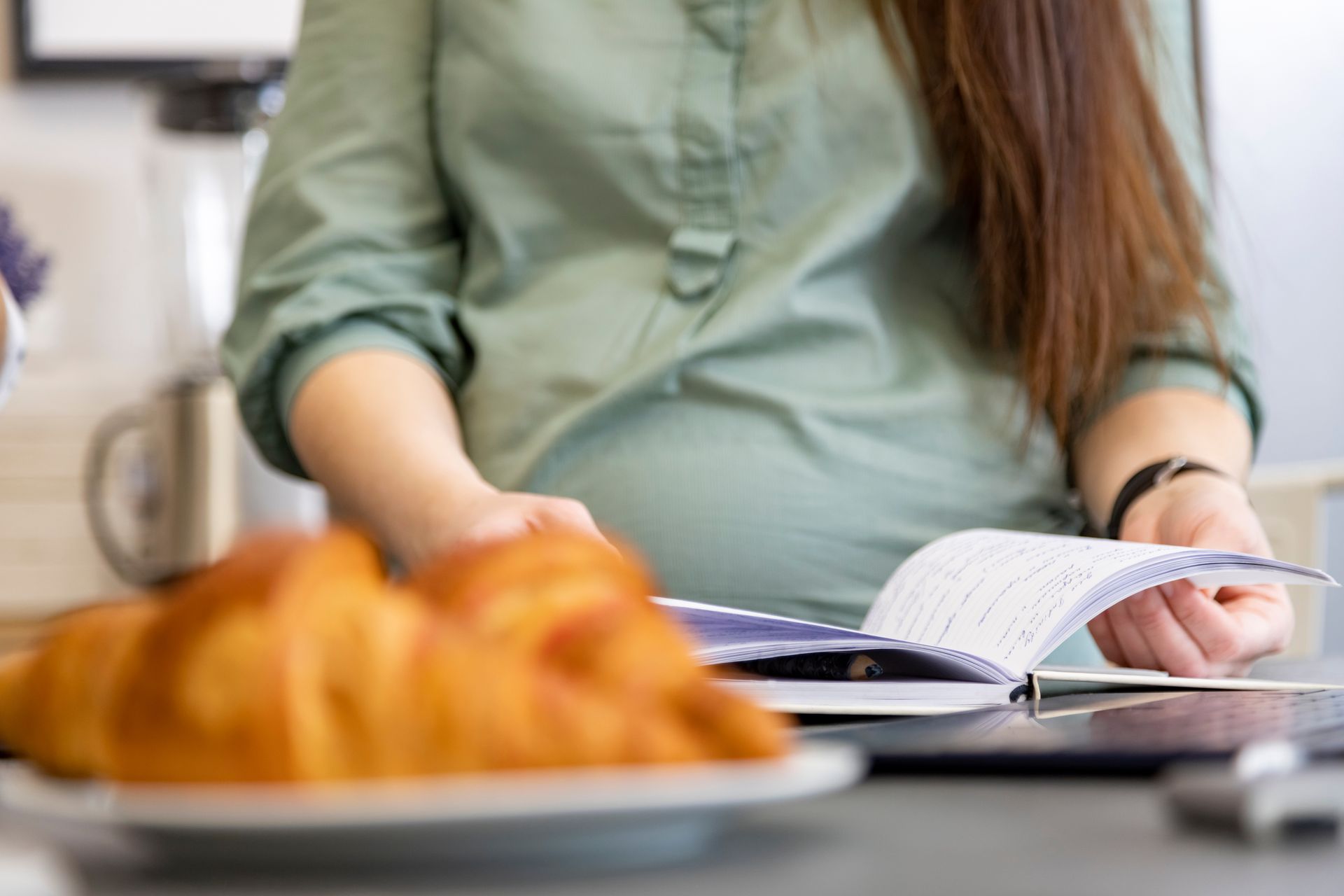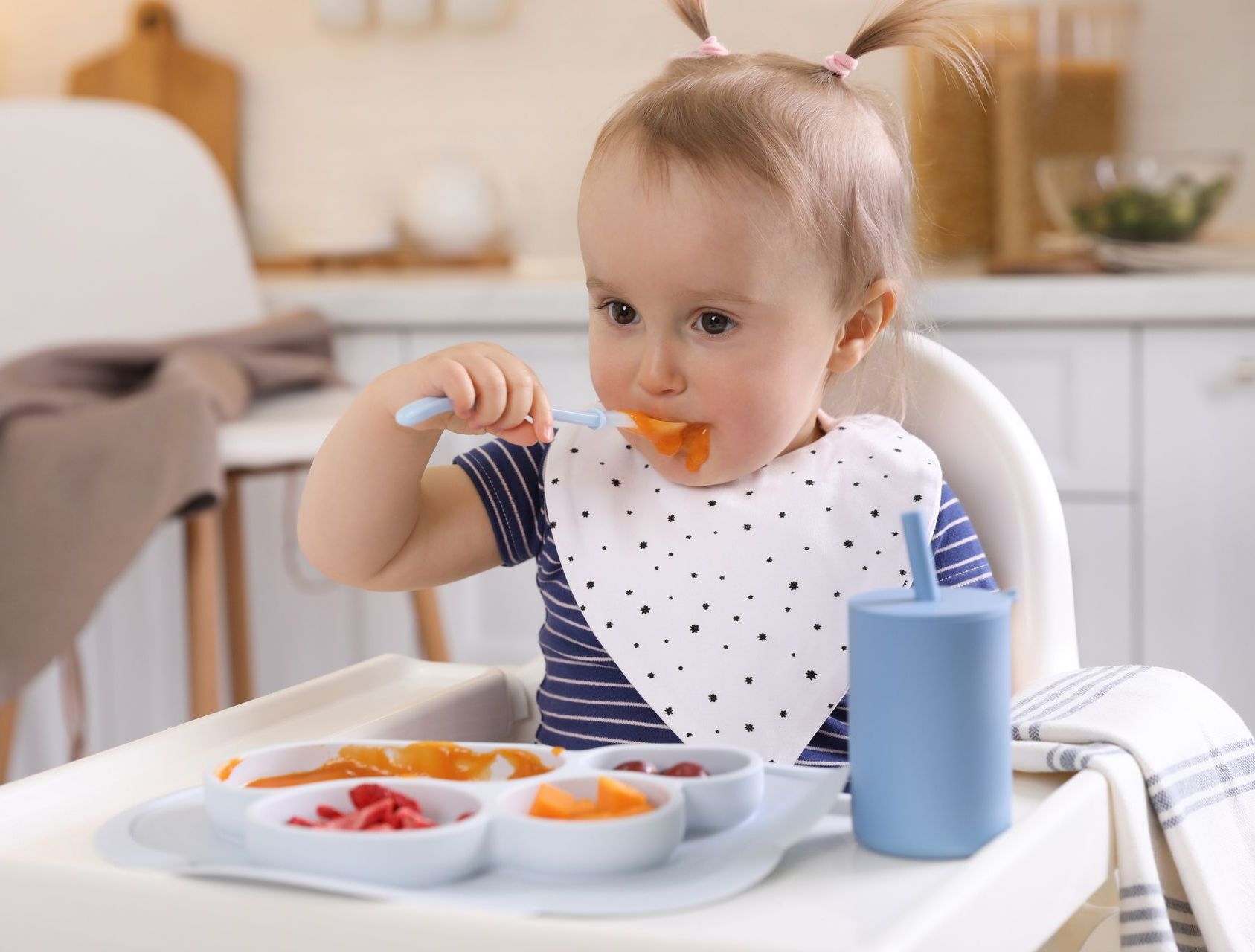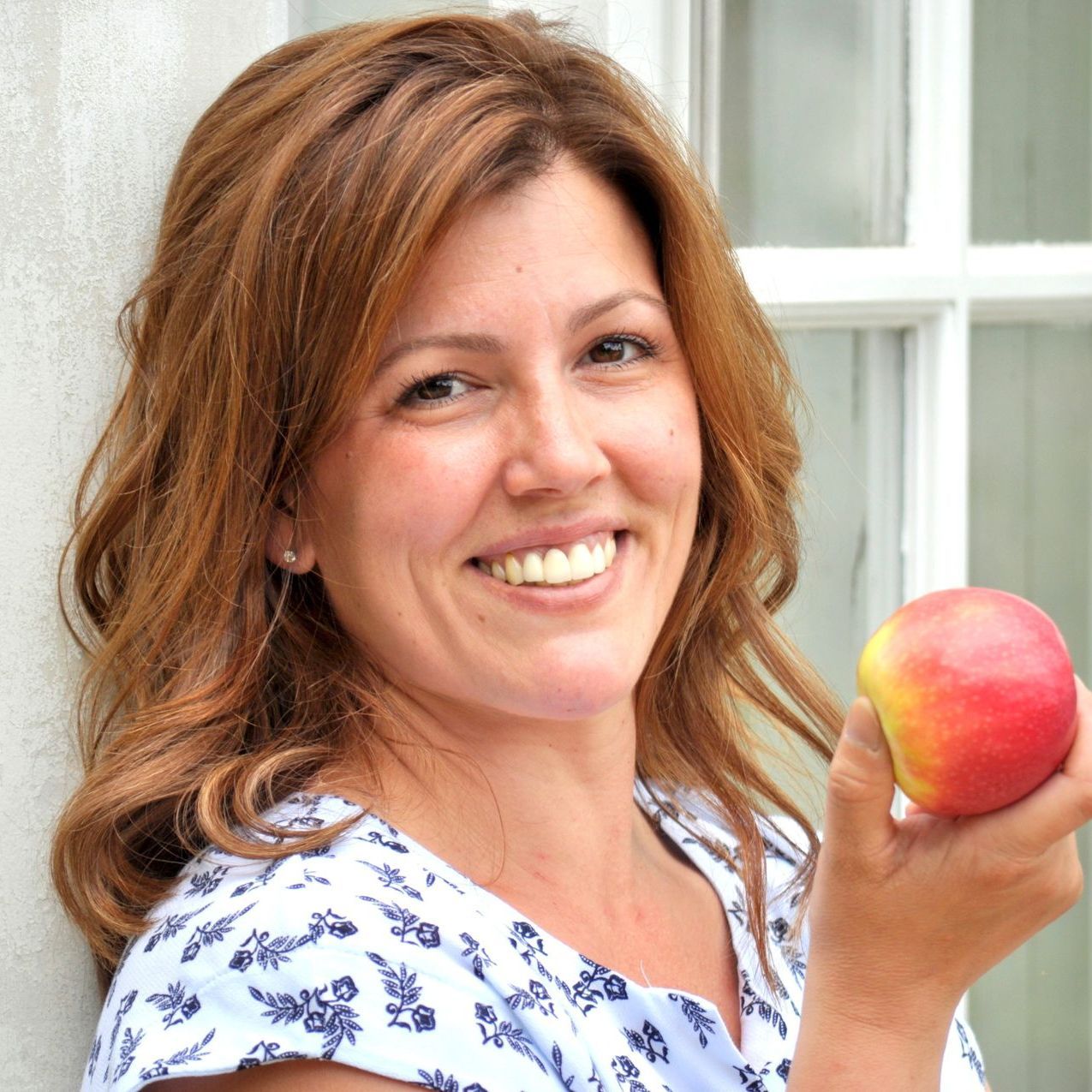Untreated Celiac Disease: A Potential Factor in Miscarriages and Pregnancy Challenges

The phrase “going with your gut” takes on increased significance when we discuss how gut health impacts fertility and pregnancy outcomes for women with celiac disease. Over the past few years, science has been uncovering how the gut is literally your “second brain”. It’s an integral part of your immune system and affects how you feel and think every day. Gut health is also one incredibly vital component of initiating and carrying out a healthy pregnancy. Against that backdrop, celiac and pregnancy can be at odds with each other. This is why women with celiac disease may experience extra challenges becoming pregnant or carrying a pregnancy to full term. The good news is that pursuing a tailored fertility nutrition plan and holistic fertility wellness care can increase the odds of success for women who may need to go gluten-free (GF).
How Does Celiac Disease Affect Pregnancy?
Gluten, a protein found in foods containing wheat, rye, and barley, triggers an inflammatory autoimmune reaction in the digestive systems of people with celiac disease. Eating anything with gluten can severely aggravate the small intestine’s lining, causing gastrointestinal distress symptoms like stomach cramps, gas, bloating, diarrhea, constipation, unintended weight loss, and anemia.¹
Once gluten arrives in the celiac digestive system, antibodies attack the offending gluten and the small intestine itself. During this autoimmune attack, the body damages its own villi—the little finger-like structures that absorb and send nutrients into the bloodstream. Since your body thinks it’s under attack, it painfully flushes all those potential nutrients right out of your system.
As a consequence, your body can’t access or absorb the nutrients it needs to remain healthy, which can negatively impact your ability to become pregnant or sustain a viable pregnancy. Researchers started noticing this link between infertility, pregnancy complications, and celiac disease at least three decades ago.²
Fortunately, the same studies revealed that women who addressed celiac disease with a strict gluten-free diet and additional nutritional programs for fertility were often able to successfully improve their chances of getting pregnant and lower their miscarriage rates.
In the years since researchers established a link between celiac and pregnancy complications, even more research has established strong links between nutrition and fertility rates for both women and men.³ Nutritional deficiencies, irritable bowel syndrome (IBS) and other food sensitivities to peanuts, soy, dairy, eggs, etc. seem to play a similar role in some individuals to the way gluten impacts fertility for those with celiac disease. So, during your efforts to become pregnant or maintain a healthy pregnancy, it makes sense to explore food sensitivities.
Pregnancy Complications in Unmanaged Celiac Disease
If undiagnosed celiac disease prevents your body from absorbing urgently needed nutrients, the celiac and pregnancy combination also halts your body’s ability to deliver nutrients to a growing baby. Your body needs a healthy dose of the right nutrients to grow an entirely new human being while still maintaining your own health and well-being. Babies in utero need good nutrition for healthy development. If your digestive system can’t provide the nutrients both of you need, essential pregnancy functions can become stymied, and the risk of pregnancy complications increases. In fact, multiple studies have linked untreated celiac disease with a miscarriage rate of twice that of women without celiac disease, or with treated celiac disease.⁴ Some of these pregnancy complications include:
- Risk of c-section
- Low birth weight
- Miscarriage
- Still Birth
Before continuing with details surrounding celiac and pregnancy complications, we want to take a moment to let you breathe. If you are struggling with the grief of losing a pregnancy, it’s important to understand that you are not alone. As raw and agonizing as this can feel, it’s important to hold on to hope. We have gathered a whole community here at Pulling Down the Moon of families undergoing the same kind of grief journey. Please reach out to our miscarriage and pregnancy loss support team to connect with people who are uniquely able to understand and support you in your healing process and help you move forward through infertility and pregnancy loss and toward brighter days.
Most Problems Occur in Undiagnosed Women

While celiac disease can certainly cause fertility problems and pregnancy complications, getting diagnosed and treated for the condition can improve outcomes. In fact, 85 percent of those women who suffered miscarriages with celiac disease did so before the disease had been properly diagnosed and treated.⁴ Once the disease was treated with a gluten-free diet and extra attention to additional nutrient supplementation, rates of fertility and healthy pregnancy outcomes improved.
If you struggle with frequent gastrointestinal distress symptoms like those listed above, talk with your doctor about getting a blood test⁵ that can tell you whether you have celiac disease or some other condition that could be complicating your efforts to get pregnant and carry a healthy pregnancy to full term.
The more you know, the more power you have to make progress in your fertility journey. Our 12-week fertility nutrition program can then provide the tailored support you need to make challenging dietary adjustments easier.
Could My Baby Develop Celiac Disease?
The answer is, maybe. Celiac disease is a genetic disorder, and the risk increases if a first-degree family member (a parent or sibling) also has it.⁶ Furthermore, a person can develop celiac disease at any time from infancy to old age. Medical experts say that babies need to carry either the HLA-DQ2 or the HLA-DQ8 gene associated with celiac disease in order for it to develop. Approximately 35 to 40 percent of Americans carry one or both of these, but still, only three percent of those people will develop the condition.⁷
Tips for the Wellbeing of You and Your Baby
Experts in the celiac disease community continue to monitor research developments about how celiac disease affects fertility, pregnancy, and childhood health. If you have a celiac disease diagnosis, you should strive for a strict gluten-free diet.
This can be a challenge at first, so Pulling Down the Moon has developed a 12-week fertility nutrition program that can support your efforts through both individual nutrition counseling and group classes. Additional holistic fertility services can support your fertility and pregnancy journey as well.
You can also increase your intake of nutrient-dense seasonal gluten-free foods and explore the fertility care strategies of Traditional Chinese Medicine, which generally includes significantly less gluten than the typical American diet.
For babies born to one or more parents with celiac disease, current research suggests that putting off gluten exposure by six months to a year might help children avoid the disease and its complications.⁸ Experts also recommend having children get a celiac disease blood test after the age of three.

Getting the Right Nutrients During Celiac and Pregnancy
Of course, gluten-containing foods like bread and pasta, not to mention other possibly tricky foods like soy, nuts, and dairy contain important nutrients like protein, vitamins, and minerals. Gluten-free diets may also impact your beneficial gut-flora count, which can impact fertility hormone levels.⁹ If you know you need to eliminate any of these foods, you’ll need to have a backup plan to get the nutrients you’ll miss. Some important nutrients you’ll need to supplement on a gluten-free diet include¹⁰:
- Iron
- Folic acid
- Calcium
- Vitamin D
- Omega-3 Fatty Acids (from safe, low-mercury sources)
Schedule an appointment with our fertility nutritionist for help making sure that you support your nutritional needs and a healthy gut microbiome.
Celiac and Pregnancy Support in Chicago
Pulling Down the Moon provides individual, family, and community support for people in all stages of their fertility journey.
Reach out to us today to learn more about our
holistic fertility services, especially our expert-led, comprehensive 12-week
fertility nutrition class designed to help you make long-term positive dietary changes that can support your fertility and pregnancy goals.
Citations
¹Mayo Clinic. “Celiac Disease - Symptoms and Causes.” Mayo Clinic, 10 Aug. 2021, www.mayoclinic.org/diseases-conditions/celiac-disease/symptoms-causes/syc-20352220.
²Pellicano, R., et al. “Women and Celiac Disease: Association with Unexplained Infertility.” Minerva Medica, vol. 98, no. 3, 1 June 2007, pp. 217–219, pubmed.ncbi.nlm.nih.gov/17592443/. Accessed 24 Oct. 2023.
³Gaskins, Audrey J, and Jorge E Chavarro. “Diet and Fertility: A Review.” American Journal of Obstetrics and Gynecology, vol. 218, no. 4, 2018, pp. 379–389, www.ncbi.nlm.nih.gov/pubmed/28844822, https://doi.org/10.1016/j.ajog.2017.08.010.
⁴Moleski, Stephanie M, et al. “Increased Rates of Pregnancy Complications in Women with Celiac Disease.” Annals of Gastroenterology, vol. 28, no. 2, 2015, pp. 236–240, www.ncbi.nlm.nih.gov/pmc/articles/PMC4367213/.
⁵“Celiac Disease Reproductive Health Heartbreak | BeyondCeliac.org.” Beyond Celiac, www.beyondceliac.org/research-news/celiac-disease-reproductive-health-heartbreak/.
⁶“Celiac Disease and Unborn Children | BeyondCeliac.org.” Beyond Celiac, www.beyondceliac.org/celiac-disease/children/resources-for-parents/ask-the-pediatric-gastroenterologist/celiac-disease-and-unborn-children/.
⁷“Celiac Disease (in Children).” Yale Medicine, www.yalemedicine.org/conditions/celiac-disease-in-children.
⁸Philadelphia, The Children’s Hospital of. “Center for Celiac Disease.” Www.chop.edu, 5 May 2014, www.chop.edu/centers-programs/center-celiac-disease. Accessed 24 Oct. 2023.
⁹Fabozzi, Gemma, et al. “Endocrine-Disrupting Chemicals, Gut Microbiota, and Human (In)Fertility—It Is Time to Consider the Triad.” Cells, vol. 11, no. 21, 22 Oct. 2022, p. 3335, https://doi.org/10.3390/cells11213335.
¹⁰“Maximizing Nutrition for Pregnancy | BeyondCeliac.org.” Beyond Celiac, www.beyondceliac.org/living-with-celiac-disease/womens-health/gluten-free-pregnancy-nutrition/
Share on Social
Discuss With Us
Our Latest Resources





